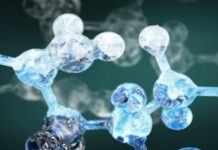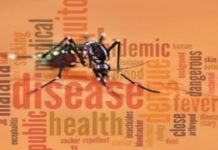Food is what we need to survive. Whether cooked food or raw food, both are a type of energy source which help our body to perform various activities in our daily lives. In today’s fast food culture, our society has been finding it difficult to choose what to eat and what not to. Obesity is one of the major causes of deaths globally. We look at food today in our articles not just as an energy source but also as something else.
It’s not very appetizing to think of food as a cocktail of hormones, but it may help explain how diet affects health. “It’s really clear,” says Donald Jump, a biochemist at Oregon State University, “that food is just a pile of biochemicals.”
The biochemicals in a cookie or a piece of broccoli can elicit reactions from human cells that are similar to that of hormones, write Randy J.Seeley and Karen K. Ryan of the University of Cincinnati in the February 22 Science. Hormones are chemicals that travel from one part of the body to another and instruct targeted cells to produce a chemical or an action.
For instance, in 2010 a team of researchers in California and Japan showed that omega-3 fatty acids from food bind to a specialized protein called GPR120 that studs the surfaces of fat and muscle cells.
When an omega-3 fatty acid attaches to the protein like a key in a lock, GPR120 sets off a chain reaction that ultimately protects the body against weight gain and inflammation. Both weight gain and inflammation have been implicated in type 2 diabetes, and Seeley speculates that food choices aimed at enhancing the cellular process triggered by GPR120 and the like might help protect against the disorder.
Fatty acids are not the only hormone like food elements. Amino acids can activate a chain reaction of events in cells that control cell division and influence the activity of insulin. Vitamin D and other vitamins are involved with the body’s immune response.
The receptor activated by omega-3 fatty acids is part of a family of proteins called G-protein coupled receptors that convey signals from outside the cell to the interior. Scientists know the specific functions of many members of that family, but they still do not know which molecules turn on some of the receptors, Seeley says.
The missing keys to those locks could be found in food. Translating research findings into clear dietary recommendations, Jump says, will be “a challenge.”
Globally there is a growing problem of food wastage and there are countries were people still die due to starvation. Even if we really find the benefits of having food in this scientific way, the question still remains will we as individuals choose the right food and eat the right amount so that wastage of food can be eliminated?



































